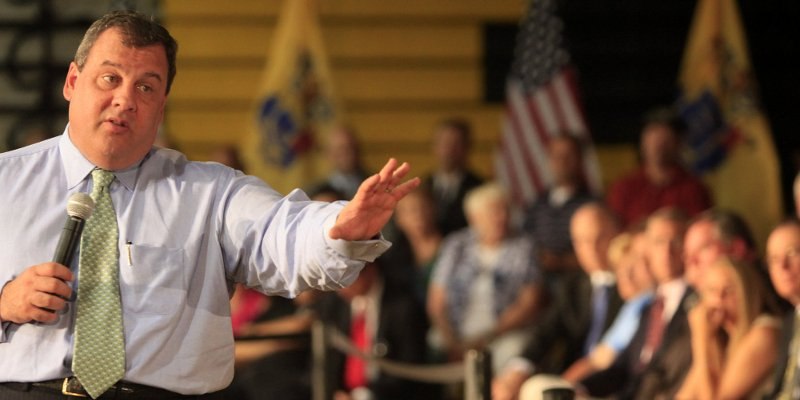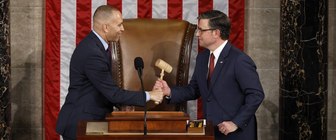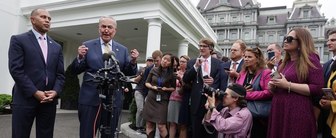Two-fifths of Republicans don't think Christie is conservative enough and most think he is unlikely to win a presidential election
New Jersey Governor Chris Christie’s path to the Republican nomination may be a difficult one. 43% of Republicans – three quarters of whom describe themselves as conservatives -- don’t think he is conservative enough. Republicans are divided on whether or not he is qualified for the job. And one in three Republicans in the latest Economist/YouGov Poll just don’t like him.
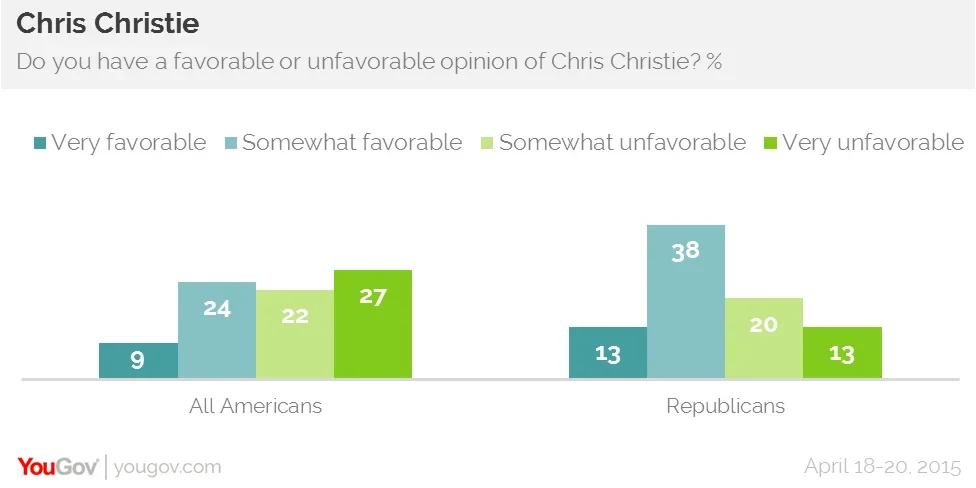
Of all those mentioned as possible 2016 GOP candidates, Christie, as a two-term governor of a normally Democratic state, started with the most potential cross-party appeal. But the Bridgegate scandal (when members of his Administration closed lanes leading to the George Washington Bridge to New York City to create traffic problems for a Democratic Mayor who would not endorse Christie for re-election in 2013) has taken a toll. Less than one in four Democrats and one in three Independents now have a favorable opinion of Christie.
But the opinions of Republicans are the opinions that matter as Christie campaigns to win the first-in-the-nation primary in New Hampshire. And those opinions are barely positive. When all Republicans are asked to describe Christie, about the strongest positive word they use is that he is a “Republican.” Negative evaluations include references to his size and to his persona, which many Republicans appear to view as “arrogant.”
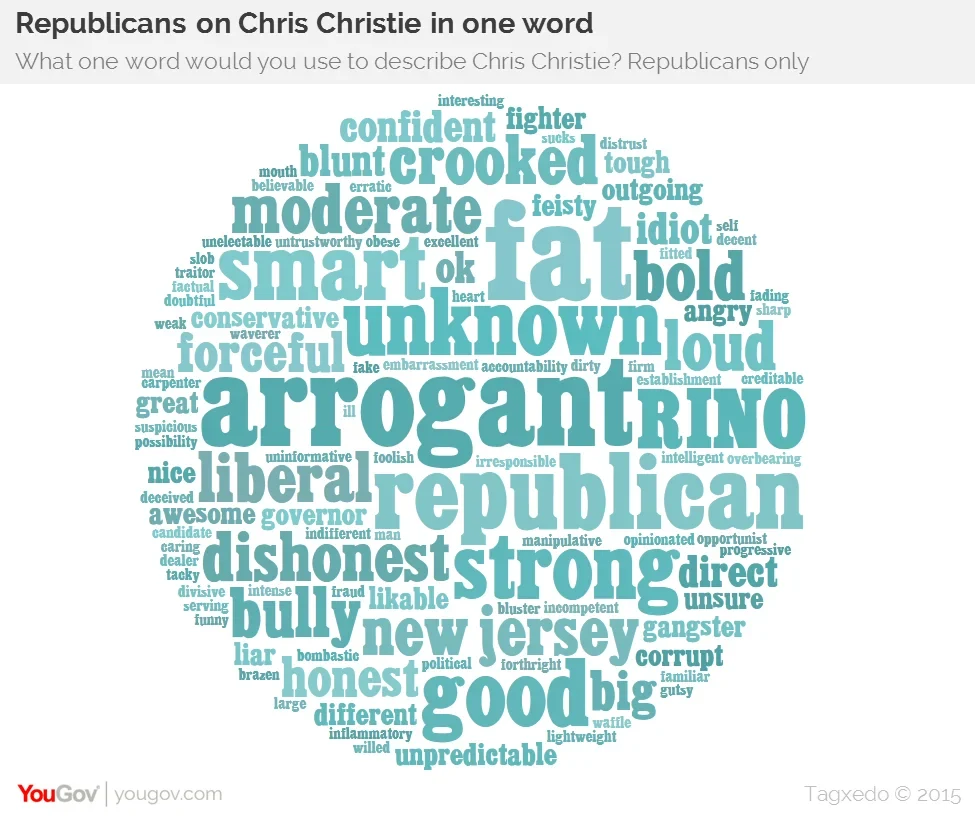
“Moderate” and “liberal” appear in the word cloud at a far larger size that the more-desired GOP trait of conservatism, underscoring Christie’s problems with the party’s conservative base. Only one in four Republicans call him a conservative, and a plurality believe he is not conservative enough.
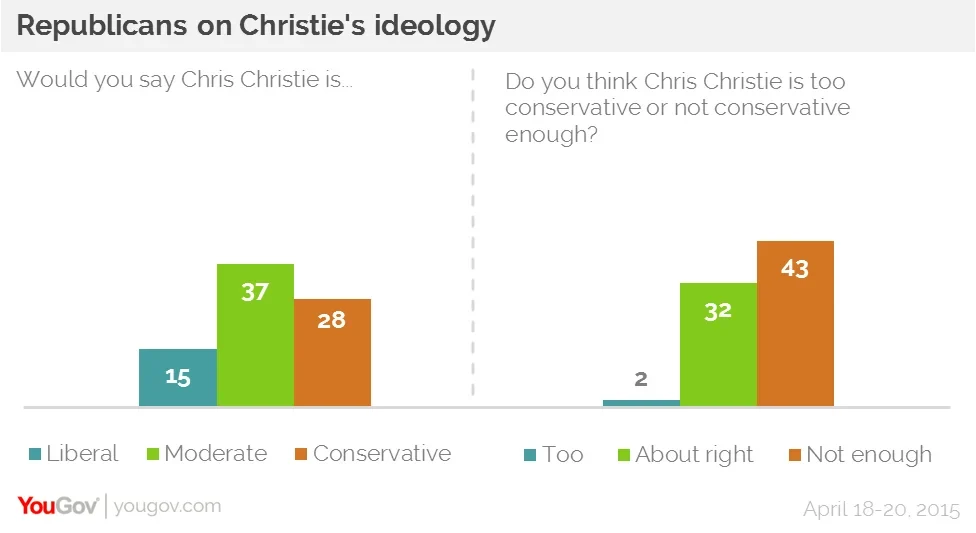
Christie’s Social Security proposals may not convince GOP primary voters that he is a conservative, though some of them, especially those that would affect the highest-income seniors get support (though not necessarily unanimous support), from both Republicans and the public overall. Majorities of both groups support imposing Social Security payroll taxes on income above the current maximum base, and pluralities would favor eliminating Social Security benefits for seniors with incomes above $200,000 a year. But the margin of support over opposition for the latter among Republicans is relatively narrow.
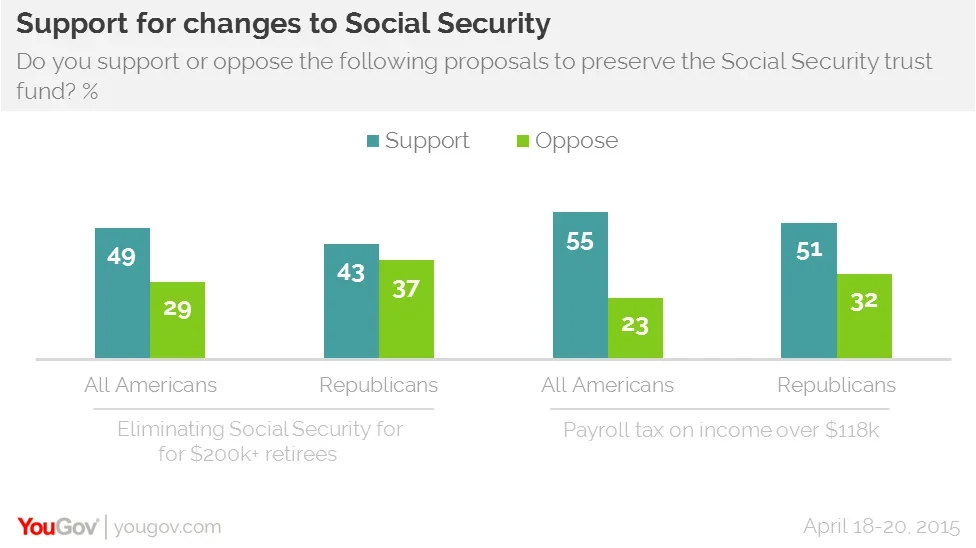
There is little support for increasing the age at which Americans can receive full Social Security benefits or start Medicare health coverage: barely one in four nationally favor doing either of those even to preserve the Social Security Trust Fund. Similarly, only 13% overall (and 14% of Republicans) would support reducing all benefits.
And Christie’s proposal to limit benefits for retirees with incomes over $80,000 is clearly divisive: the public overall – including Republicans – are closely divided on this.
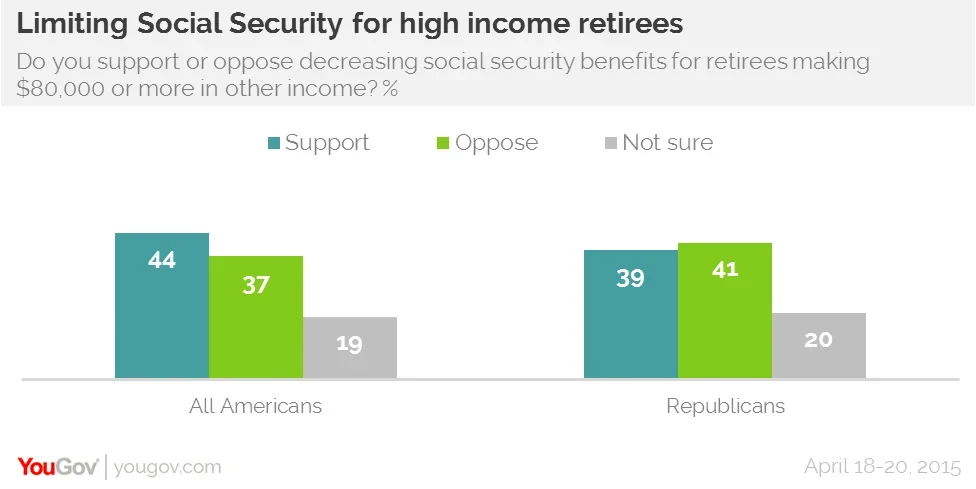
For Americans, Social Security remains a Democratic issue. The Democrats hold a ten-point margin over Republicans as the party better able to handle Social Security (though one in five say neither party can handle it and 16% rate them equally).
Christie does get credit for strong leadership, an image he has fostered and perhaps even nurtured with his not-so-popular Social Security proposals. However, he does much better with Republicans on this than he does with the country as a whole. Nationally, just about as many people say he is a weak leader as call him strong, and Christie lags behind Democratic candidate Hillary Clinton on this measure (in last week’s poll, nearly two in three called Clinton a strong leader). 63% of Republicans call Christie strong.
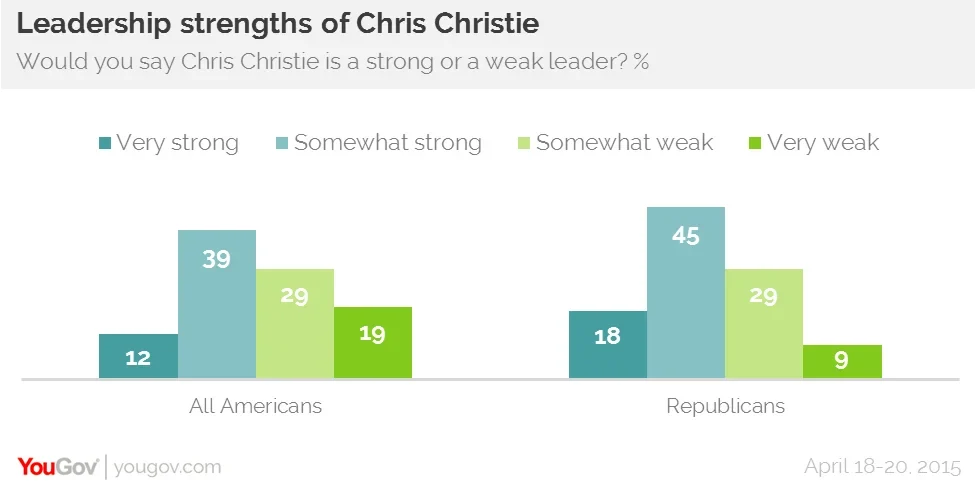
But perceived strong leadership doesn’t seem to overcome the combination of having the wrong ideology for many Republicans and other perceived Christie weaknesses. Republicans are divided on whether or not he is qualified, and many are dubious about his ability to manage an international crisis. Finally, Christie is no longer a candidate with cross-party appeal, and even Republicans say this. Less than one in five Republicans think Christie is even somewhat likely to win the Presidency. In previous Economist/YouGov polls, more Republicans believed that was the case for their party’s three already-announced candidates: Tennessee Senator Rand Paul, Florida Senator Marco Rubio and Texas Senator Ted Cruz.
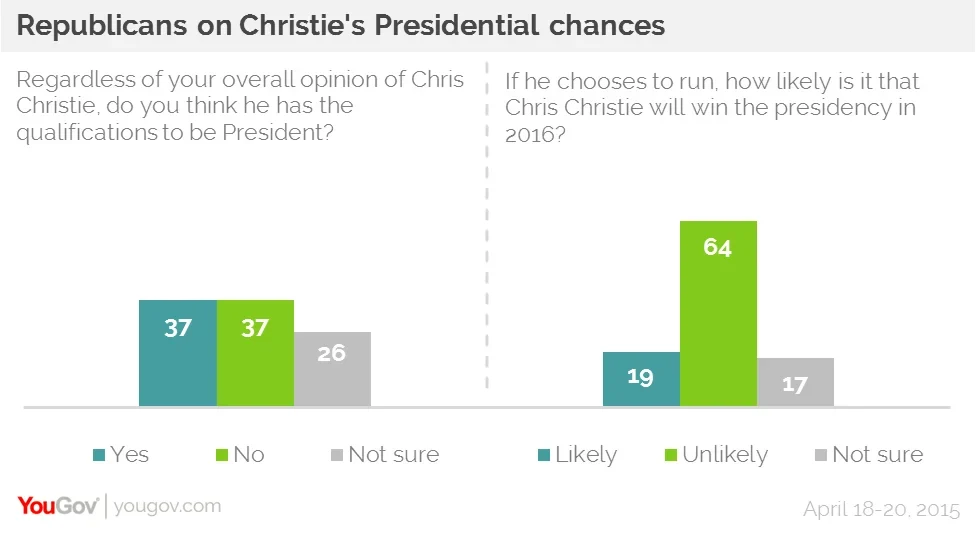
Economist/YouGov poll archives can be found here.
